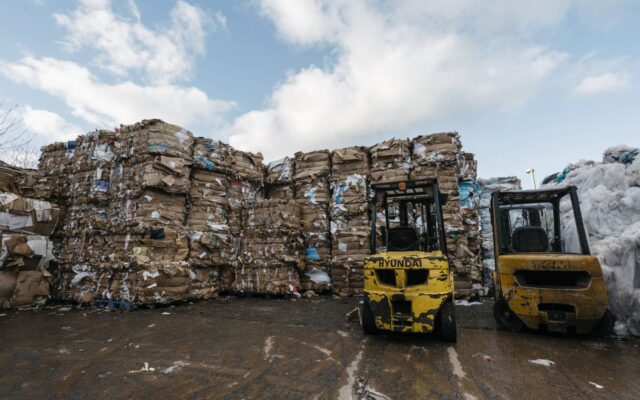
4 Simple Ways You Can Be More Eco-Friendly at Festivals
Let’s face it, festivals are fun; you get to spend time outdoors with friends and listen to great music. However, there is a darker side to festivals, and that is the sheer amount of rubbish that is often left behind.
According to Rob Kearle, head of recycling and refuse at Glastonbury, in one year alone, 20,000 tents were abandoned at the Glastonbury site after the fun was over. A recent survey by Love Your Tent found that from 1,200 people surveyed, more than half had left a tent behind at a festival.
The same survey also discovered that campsite waste contributed to 86% of the total waste of a festival. It’s time for festival-goers to become more eco-conscious and considerate, and ensure that they are doing what they can to reduce their environmental impact.
Recyclable Tents
It can be all too tempting to discard a tent at the end of a festival. After all, it’s easy to pick up a tent for under £20 and, after a weekend at a festival, the last thing on many revellers’ minds is fighting to pack away and transport a muddy and possibly damaged tent all the way home.
But leaving your tent behind can cause devastation to the environment and it puts huge strain on festival resources, as workers spend days dismantling and sorting through the tents that have been dumped.
Although many are collected by charities and groups like the boy scouts – and in 2013, one local woman collected over a 1,000 tents to turn into clothing – most end up in landfill.
As a festival goer, you can become more eco-savvy by always ensuring that you take your tent home with you after every event, and by encouraging your friends to do the same. It may be worth investing in a sturdy, quality tent that you can use again and again – the more you invest the more likely you are to look after it!
Or, if you know you will definitely not take your tent home, consider buying a compostable tent, which will not impact on the environment when you abandon it.
Reusable Water Bottles
It’s estimated that over one million bottles of water are consumed over the four days that Glastonbury is open to the public. This whopping figure equates to an enormous amount of plastic wastage.
Luckily, it can be reduced if you take your own reusable water bottle. You can pick one up online, from your local supermarket or even on-site. All festivals have taps located throughout the grounds (Glastonbury has over 400 drinking taps alone). Not only will this reduce the amount of waste you produce, but it will also save you plenty of money in the long run.
Lift Share
In truth, being green begins before the festival even starts. You can be more environmentally responsible by planning your trip so that you get to the festival in the greenest way possible.
If you are driving alone to a festival then you can offer to ride share with other festival goers by posting a message on the festival Facebook page. Other options include jumping on a dedicated festival bus, or taking the train.
Remember to Recycle
Most of the festivals in the UK have implemented a recycling scheme. At Glastonbury there are three different recycling bins: dry recyclables, compostable waste and landfill waste – so chose your bin wisely.
Throughout the festival, volunteers work tirelessly to remove and recycle waste 24-hours a day, and dustbin trucks empty the 15,000 oil drum bins to keep the festival as clean as possible.
But that still leaves a few tonnes of waste for the paid team to collect when the festival finishes. This usually takes around two weeks, depending on the weather – the wetter the conditions, the more waste.
While festival goers in the UK are becoming more eco-friendly, we still have a lot to learn. For example, the Burning Man Festival in America has a ‘Leave no Trace’ policy where festival goers are not only encouraged, but required to take every bit of rubbish home with them. Campers that leave behind waste can be potentially barred from future festivals.
So take note – compostable tents and reusable water bottles may not seem like a huge contribution, but with 175,000 people in attendance each year, every little bit of recycling helps.
Here at Brown Recycling, our on-site waste transfer station allows us to work towards our zero-to-landfill goal, by recycling as much as we possibly can. We recycle around 95% of the waste we collect, only using landfill as a last resort. For more information about our waste transfer station or recycling services, do not hesitate to get in touch with our friendly team of experts today.
This website uses cookies to enhance your browsing experience and deliver personalised ads. By clicking “Accept All Cookies”, you agree to the storing of cookies on your device to enhance site navigation, analyse site usage, and assist in our marketing efforts.




